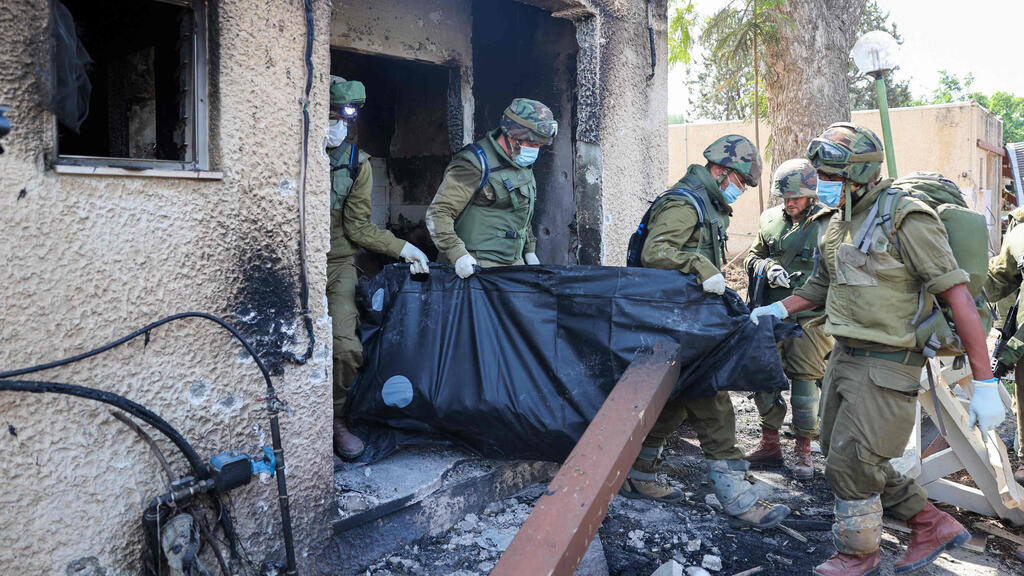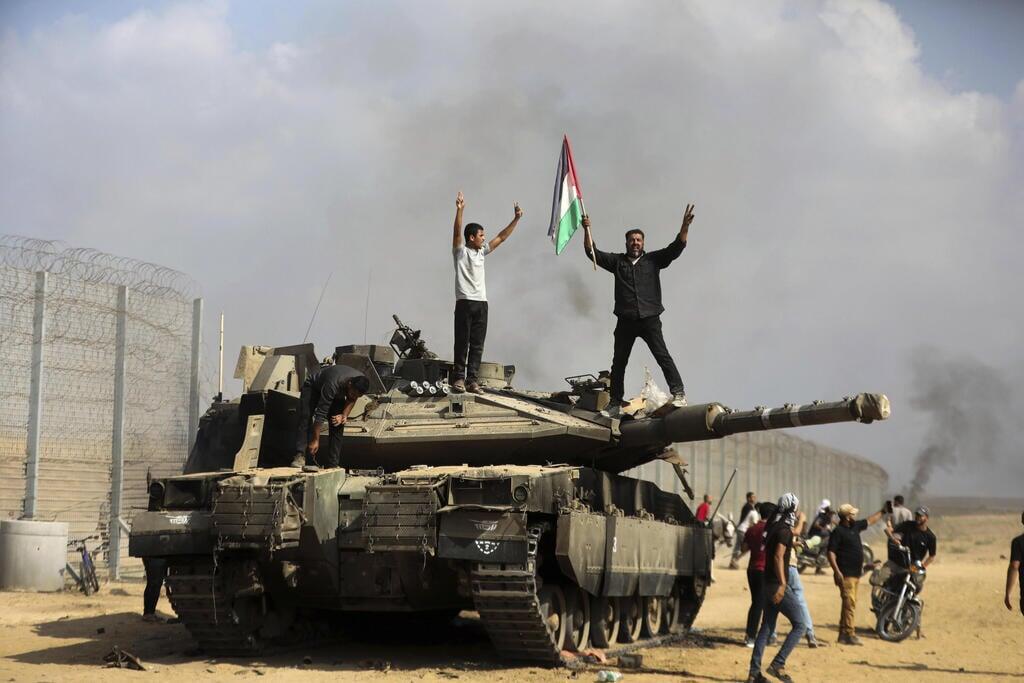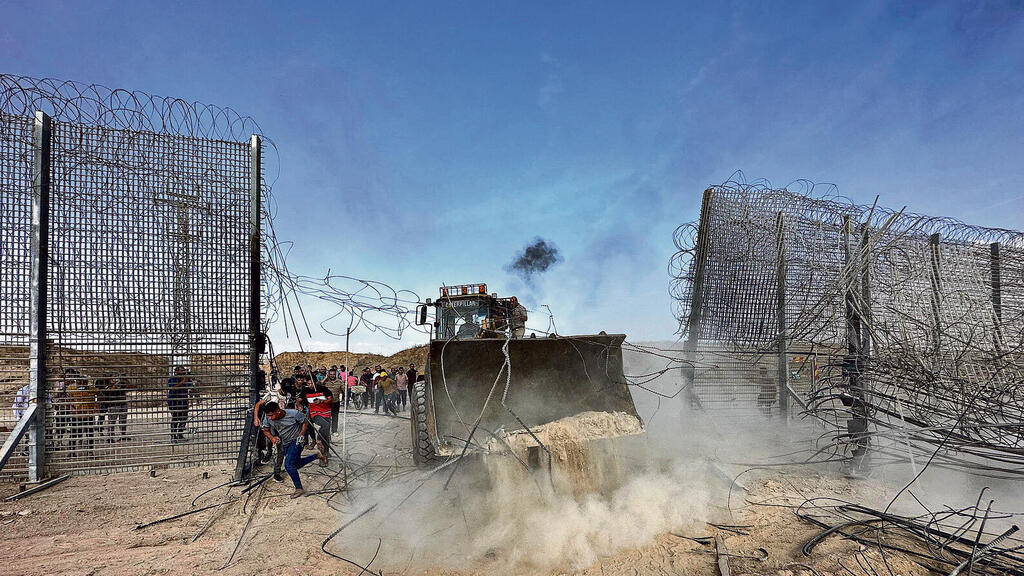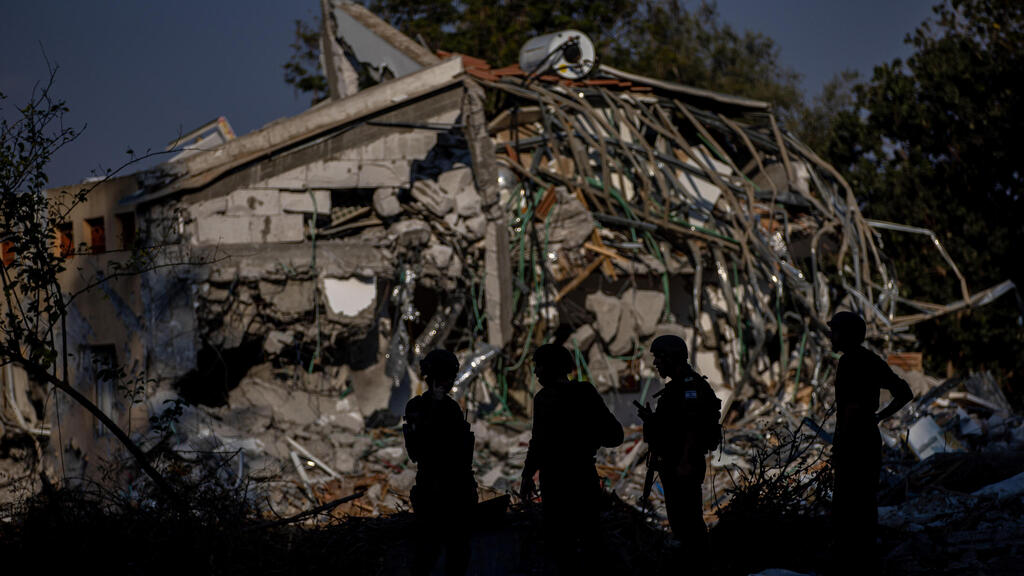Getting your Trinity Audio player ready...
This may not be the first war in the world in which perception plays a central role even before the first is fired, but the "Gaza War" can definitely be considered the first organized conflict in the world in which perception plays a central role even before it is officially recognized as a war.
More stories:
The horrifying images and footage that were released just after the bloody events carried out by Hamas terrorists in Israeli kibbutzes and urban settlements on October 7th were the ones that announced everything that was expected to happen. Israeli airstrikes in Gaza, preparations for a ground invasion, a national emergency government and, finally, a full-scale ground invasion with the goal of eliminating the Hamas terror organization.
The rapid dissemination of videos and images from Gaza had a dramatic impact on both the timeline and the expected course of events. It is impossible to know how Israeli decision-makers operated under the immense emotional pressure that developed within Israel and beyond when we all realized the magnitude of horror. However, it is clear that the impact of these images that shocked millions around the world left no real option for decision-makers other than calling up full reserves, preparing for war, and establishing an emergency government.
In the IDF's command bunker, experts from various units of the IDF's Psychological Operations (PsyOps) are working around the clock. They closely monitor the prevailing mood and public discourse and react accordingly to raise awareness and, most importantly, to influence the worldviews of millions of people. Sometimes it succeeds, and sometimes it doesn't. But the insight in the Israeli security establishment is that this arena cannot be left without a response and without proper, continuous handling.
This insight has created entire units in various branches of the military - the IDF spokesperson is just one of them - employing soldiers whose role is to generate influence and shape perception, or simply to influence perception. It doesn't mean that Israel, the country that coined the term "hasbara" (explanation or public relations), doesn't sometimes fail in the missions of "hasbara." In practice, though, it keeps trying.
Another dramatic aspect of influence relates to the factors that currently control the discourse. It's not the IDF, the Foreign Ministry, or the intelligence agencies that can be held responsible for what is happening in global public discourse. Paradoxically, those who determined what perception would be created from the horrific actions of the terrorists in the kibbutzes and urban settlements in southern Israel were the terrorists themselves – the murderers. The cameras they carried documented their crimes and became the most powerful tools for Israel, but the distribution of the materials was not under Israel's control. Not really. Instead they were posted on social media and Telegram channels, available for anyone to see.
This is a paradox, especially when examining the issue from the perspective of psychological operations and influence. If the enemy sets the narrative that will be created, even if it is to its detriment, what is the point of all the units and experts? Who is the force that controls the public discourse, and can it be influenced or changed at all after it has started without your consent?
The Israeli experience teaches that almost automatically, Israeli government ministries dealing with relevant issues (Foreign Ministry, IDF, national public relations apparatus) immediately dive into the arena of influence in order to participate. However, in the end, when the network has already established the narrative to which millions of people will respond, the Israeli establishment finds itself chasing its own tail, trying to convince journalists from foreign media outlets to accept and promote the Israeli narrative.
The paradox grows even more acute when thousands of Israelis decide to contribute to the global influence game during dramatic events. Yes, this is the current case of the events in the kibbutz massacres. Hundreds, if not thousands, of Israelis decided to participate in global influence efforts and conducted campaigns with images of the murdered, stories of the kidnapped, horrific scenes, and more. For official Israel, there was nothing left but to ride the wave and "enjoy" a few days of grace in the minds of the global public.
However, the effect quickly faded, either due to the massive Israeli strikes in Gaza and the graphic images of severe destruction disseminated from there, alongside the despairing cries of the Gazans facing the humanitarian crisis born rapidly due to Israel's decision to cut off electricity and water to Gaza, or due to the short human memory. Surveys conducted both in the United States and on X social media accounts with tens of millions of followers revealed that the Palestinian narrative quickly took over and gained more empathy from the audience than the Israeli tragedy. Does this mean that Hasbara failed? Could it have been done differently? Did Israel once again not come prepared, not even for the largest awareness event in its history? These questions will have to be examined after the war. However, it can already be stated with caution that the ability to influence the world discourse while we are alive and active is relatively low.
Looking inward at the Israeli scene reveals that, even here, influence games are in full swing. If in the past it seemed that external actors could not make a significant impact on Israeli public discourse, it now seems that Iranians and other states (likely Russia) have the ability to "ignite a fire" in the internal Israeli face-off. Suspicious bots linked to Iranians were detected by examination bodies and volunteers working in Israel. It was revealed that messages were implanted into the Israeli public discourse with the aim of causing serious damage to Israeli domestic stability and cohesion.
For example, one of these messages claimed that "traitors" informed Hamas of the impending attack. In another case, terrorist organizations used a picture of former Prime Minister Ehud Barak, taken at Ben Gurion Airport on his way home. Human and anonymous users began spreading the false claim that Barak had fled – and the terrorist organizations used the image and circulated it on their social networks as evidence of Israel's failure.
If in the past we talked about fake news, followed by post-truth, and more recently disinformation, today we must talk about campaigns of destabilization conducted by foreign states and terrorist organizations against the State of Israel. Just as the Soviets tried to overthrow regimes or undermine them in the West during the Cold War, the same thing is happening today. Through hatred, incitement and division, foreign actors, working in coordination with domestic elements deeply involved in Israeli politics, manage to inflame internal strife and further damage social cohesion and the ability to conduct normative discourse in a democratic society dealing with significant challenges.






